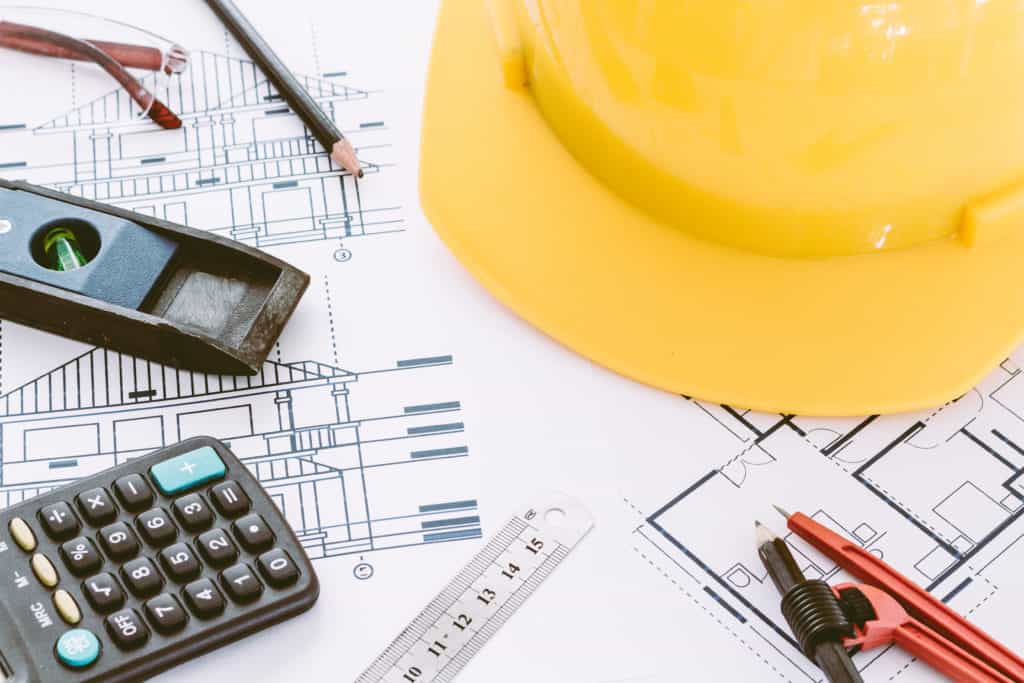
Any time you’re having work done on your home, it’s important to hire the right person. There are many ways to determine whether you’ve found a reputable contractor. One of the most basic is to check for a license.
Table of Contents
What happens if you find a contractor who does not have a license? Are there risks associated with hiring an unlicensed contractor? Are there any potential benefits? And are you always better off hiring a licensed contractor?
In this article, we’ll answer each of these questions. Continue reading for a full discussion of unlicensed contractors vs. licensed contractors.
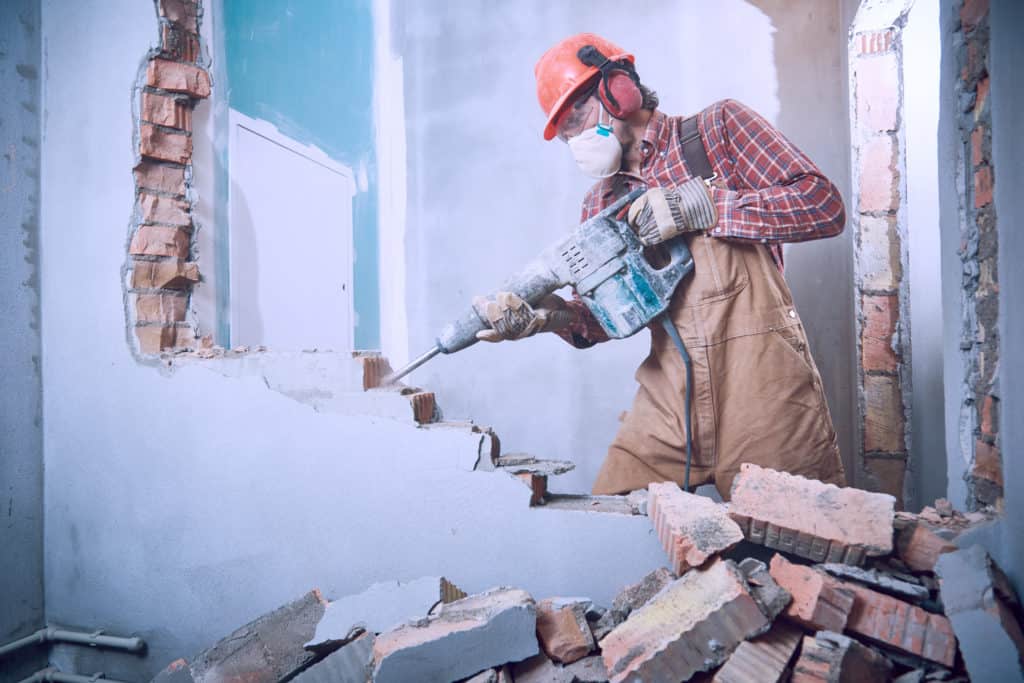
What are Unlicensed Contractors?
Most states require trade service professionals to be licensed. This goes for plumbers and electricians. It also goes for general contractors.
When a home contractor is licensed, it means he or she has passed rigorous exams. It also means they have worker’s compensation and liability insurance.
An unlicensed contractor is someone who has skipped these steps. They are not licensed by the state to perform work on your home. As such, there is no way of knowing if they have the correct expertise. And, there is no guarantee that they are fully insured. This is how they keep overhead costs down.

Are There Benefits to Hiring Unlicensed Contractors?
You may wonder: Why would anyone hire an unlicensed contractor?
There is one simple reason. Most of the time, these contractors will be far less expensive than their licensed counterparts. This is mostly a matter of insurance. Contractors who take on projects without a license are not mandated to carry worker’s comp, liability, or other kinds of insurance. This saves them a lot of money. And, it enables them to charge you a lower rate for their service.
This is the main benefit of hiring a tradesman who is unlicensed. Simply put, unlicensed contractors tend to be cheap.

Are There Risks to Hiring an Unlicensed Contractor?
There is an obvious follow-up question: What are the risks? Are there reasons not to hire unlicensed contractors?
The short answer is yes. Here are some of the drawbacks to hiring a contractor without proper licensing and insurance.
- Unlicensed contractors are not able to secure permits. What this means for you is that they cannot have the work professionally inspected. As such, it may not comply with local building codes. Your home project could be illegal. It could also be unsafe.
- What happens if a contractor installs a new appliance, and that appliance malfunctions? For example, what if a new hot water heater explodes? If it was installed by a licensed contractor, your insurance company should cover the damage. If it was installed by an unlicensed contractor, your insurance company won’t cover it.
- Along the same lines, think about product warranties. Most appliances come with warranties. If they are installed by contractors who lack licensing, the warranty is voided.
- Contracts with unlicensed service professionals are usually not enforceable. If you have a problem or a dispute, you will find no legal recourse.
- As a homeowner, you will assume legal liability should your service professional become injured. You will also be liable if their work leads to someone else getting injured. Remember, these service professionals likely don’t have any insurance coverage of their own.
- As a homeowner, you assume legal liability if the project doesn’t pass code.
- As a homeowner, you assume legal liability for any future property damage caused by the project.

How to Identify a Contractor Without a License
As you look to hire someone to work on your home, it’s vital to do your due diligence. There are various ways in which you can identify a service trade professional without a license. Here are some of the most common warning signs of a disreputable contractor:
- They ask you for a large down payment before they are willing to start work on the project. Or, they repeatedly ask for money throughout the project, especially in the early stages.
- They inform you that permits and inspections aren’t necessary.
- They ask you to obtain a permit for them.
- They are only willing to make a verbal contract with you, but refuse to get anything in writing.
- You ask for proof of insurance and they refuse to provide it to you.
- They insist on a strange schedule (only working weekends, only working after hours).
- They ask you to make out your check to CASH.
- There is no license information anywhere on their marketing materials (website, business card, etc).
Also note: You can always ask for a service professional’s license number. When you receive it, you can check it with the local licensing body. (This varies from state to state.) If someone is unwilling to furnish you with a license number, this is usually a red flag. Reputable service professionals will be more than happy to confirm their licensing.
Again, these are some of the warning signs of a contractor who has not gone through the licensing steps. Hire someone like this only at your own risk.
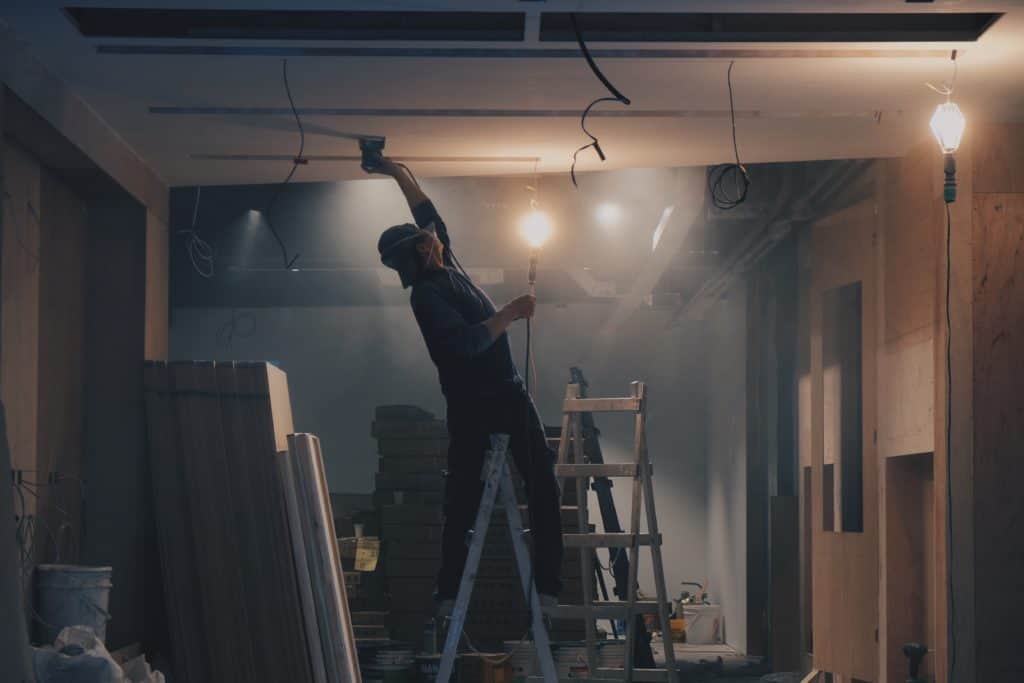
What Happens if You Do Hire an Unlicensed Contractor?
Let’s shift gears. What if you’ve already hired a contractor who doesn’t have a license? And what if you run into a problem with that contractor? For example, what if they do a shoddy job? Or what if you feel like you’ve been ripped off? Do you have any recourse?
Here is some quick advice on what to expect if you hire a bad trade service professional and have an issue.
- In some states, there are strict rules stating that contracts with unlicensed professionals are illegal. Thus, they cannot be enforced. This may mean you’re out of luck.
- In some states, if you knowingly make a contract with an unlicensed person, you still have to pay for their services!
- In some states, there may be recourse available, depending on why the contractor is unlicensed. This is especially true if the reason is minor. An example would be a licensed contractor who simply forgets to renew.
The important takeaway for homeowners: If you get ripped off by an unlicensed tradesman, you may not have many options.

Can You Sue an Unlicensed Contractor?
You may wonder about hiring a real estate attorney to help your case. The efficacy of this varies state by state. The best approach is to call a real estate lawyer and talk to them directly. Tell them about your experience, and see what they advise. Your real estate lawyer will tell you if you have any options available.
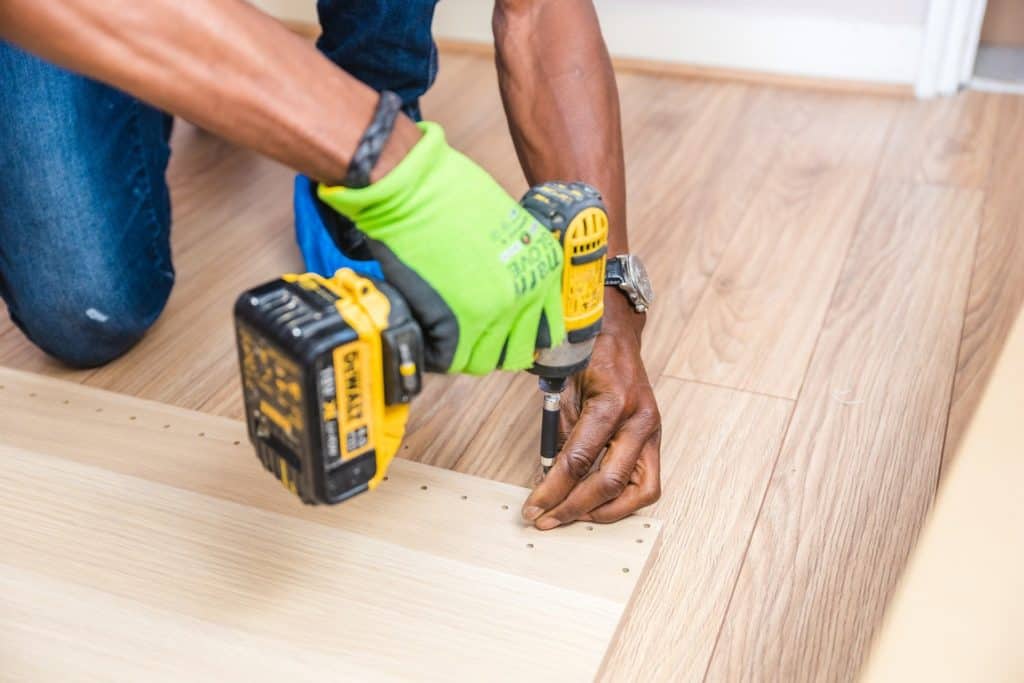
What are the Benefits of Hiring a Licensed Contractor?
Ultimately, it’s wise to partner only with licensed contractors. There are several reasons for this. Here’s a quick rundown:
- A licensed contractor has passed rigorous testing requirements. They have proven themselves to have technical expertise in their field. This means you can usually trust them to do good stuff.
- In most states, working as a licensed general contractor requires you to carry insurance. This includes workers compensation insurance. It also encompasses liability insurance. This protects you as a homeowner. If there is an injury or other problem, you won’t be on the hook for it.
- If you work with a contractor who has a license, the contract you have is legally enforceable. What this means is that, if they do a bad job or abandon the project, you can take legal action. This is a significant form of protection for you as a homeowner.
- Another reason to hire a contractor with a license: If you don’t like their work, you can complain. Specifically, you can file a complaint with the licensing board in your city or state. You can also lodge a protest with the local business bureau or chamber of commerce. This creates some accountability on the part of the contractor.
- A licensed contractor will be able to secure permits. They will have extensive knowledge of local zoning and building codes. The service they provide is almost sure to be legally compliant.
Working with the right contractor helps protect you. It may be a little more expensive, but it’s worth it. You’re paying for superior workmanship. And, you’re paying for peace of mind. These are just some of the reasons why we recommend working with licensed professionals.
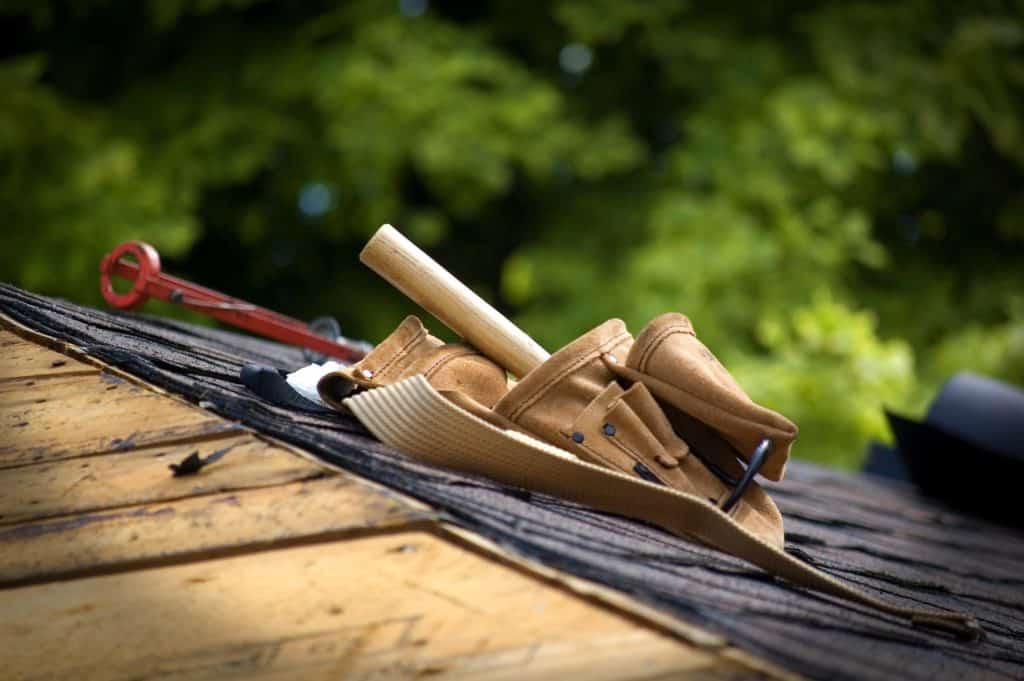
How Can You Find a Contractor with a License?
As we mentioned earlier, it’s critical to do your due diligence. Make sure you are proactive in vetting potential contractors and finding someone who has the right credentials. Here are some tips for making that happen.
- Ask to see their license. You shouldn’t assume your contractor has a license. And, you don’t have to take their word for it. You can always ask to see their license. Or, ask for the number that’s on that license. You can then check that number, verifying it with the licensing board in your area.
- Ask about their insurance. Double check that they have a workers’ compensation insurance policy. Also verify that they have general liability insurance. You might even ask for the name and number of their insurance representative. You can call that person to double check that the contractor is insured.
- Ask if they have a surety bond. It’s crucial that your contractor be insured. It’s also important for them to be bonded. Again, you have every right to ask them about this directly. Inquire as to their bond company. Reach out to that company to verify what you’ve been told.
- Seek word of mouth recommendations. Ultimately, the best way to find a reputable contractor is to ask around. Check with your friends and family members. Ask them if they have someone they have worked with. See if it’s someone they would be willing to recommend.
- Ask for references. Still another important step is checking references. Ask your service professional if they have any previous customers who would vouch for them. The answer should be yes. A good service provider should have plenty of enthusiastic fans. The reference check is a crucial aspect of your due diligence.
- Inquire about permits. For major renovation projects, you’ll need permits. Ask the contractor about this. See if they will be able to pull the permits for you. If they are licensed, this should be no problem. If they tell you to secure the permits, that’s a major red flag.
- Insist on a written contract. Reputable contractors will be happy to put everything in writing. A good written contract will outline the scope of the project. It will include price information. It will estimate a timeline. Only disreputable contractors insist on verbal contracts. This should be taken as a red flag.
- If in doubt, ask a real estate lawyer. If you ever have questions about a contractor, a real estate attorney can help. This is especially important if you wind up in a dispute. A real estate lawyer will advise you on your options. And, a real estate lawyer will represent your interests.
Summing Up: The Problem with Unlicensed Contractors
There’s a reason why some people choose contractors who don’t have licensing. It saves a few bucks. And when it comes to real estate renovations, that can be an attractive prospect.
However, it’s unwise to work with an unlicensed contractor. It may end up costing you more in the long run. You may have to deal with the fallout from shoddy work. You may have legal liability issues. Or your contractor may abandon the project, leaving you with no legal recourse. This isn’t always the case, but it is a very real risk,
By contrast, working with a licensed tradesman can provide you some peace of mind. This includes peace of mind about the quality of their handiwork. It also includes peace of mind about your own legal protections. It may cost more, but that’s a worthwhile investment to make.
The bottom line: Working with an unlicensed contractor may seem like it’s no big deal. It can actually come back to bite you. Play it safe and make sure you partner only with reputable vendors. The first step in that process is confirming that your service tradesman has the proper license.
